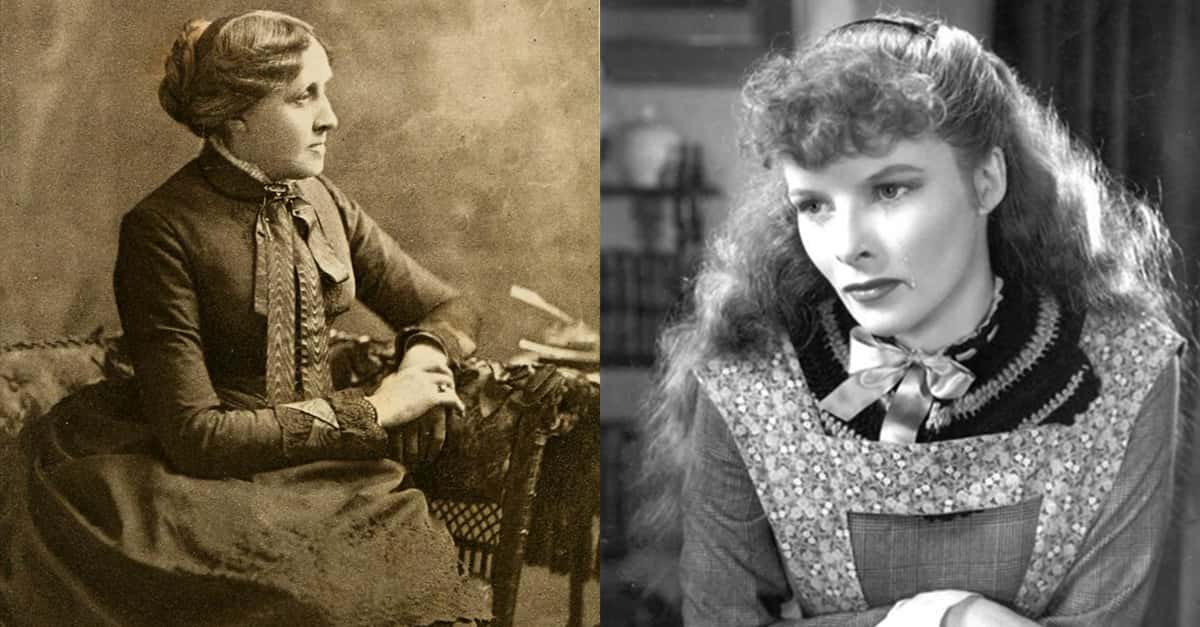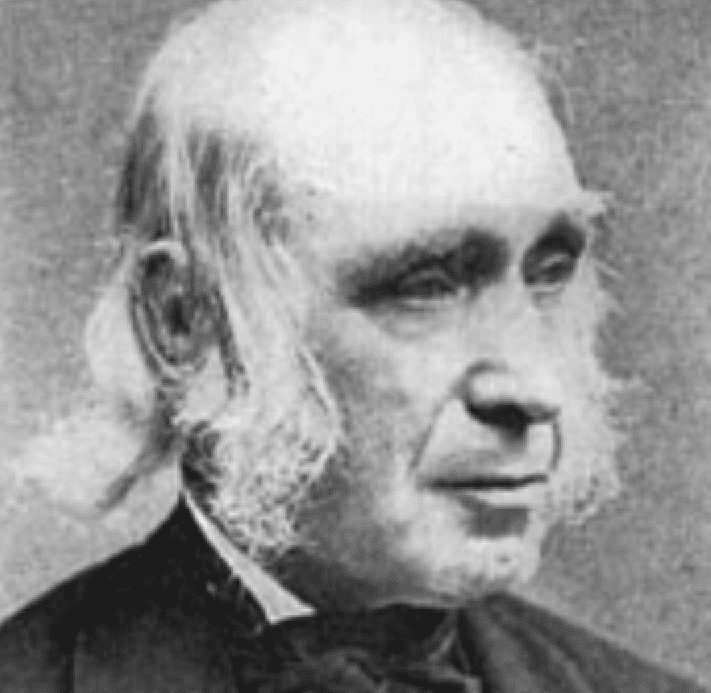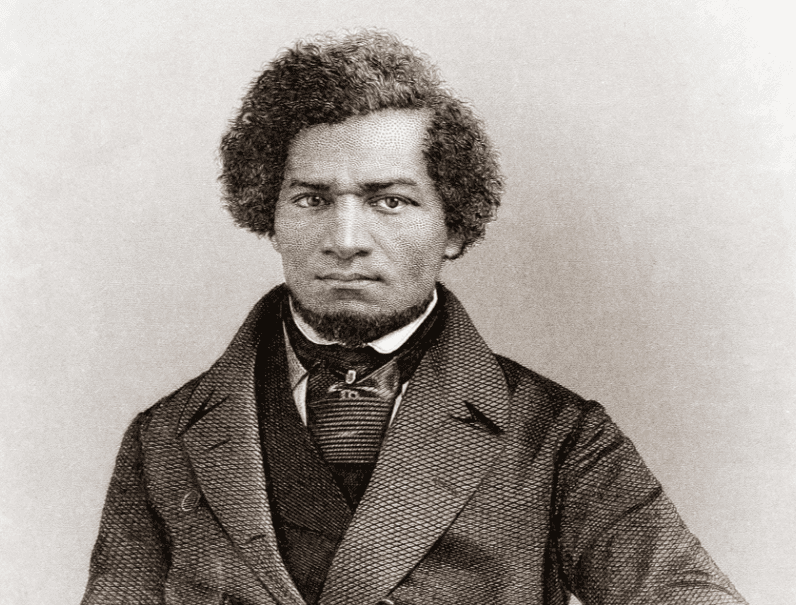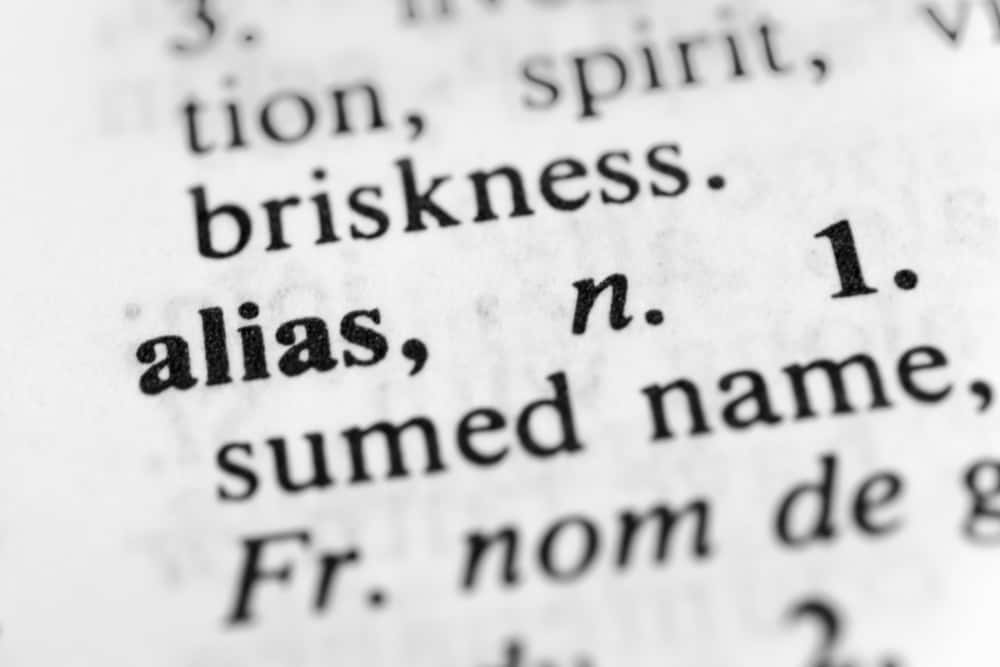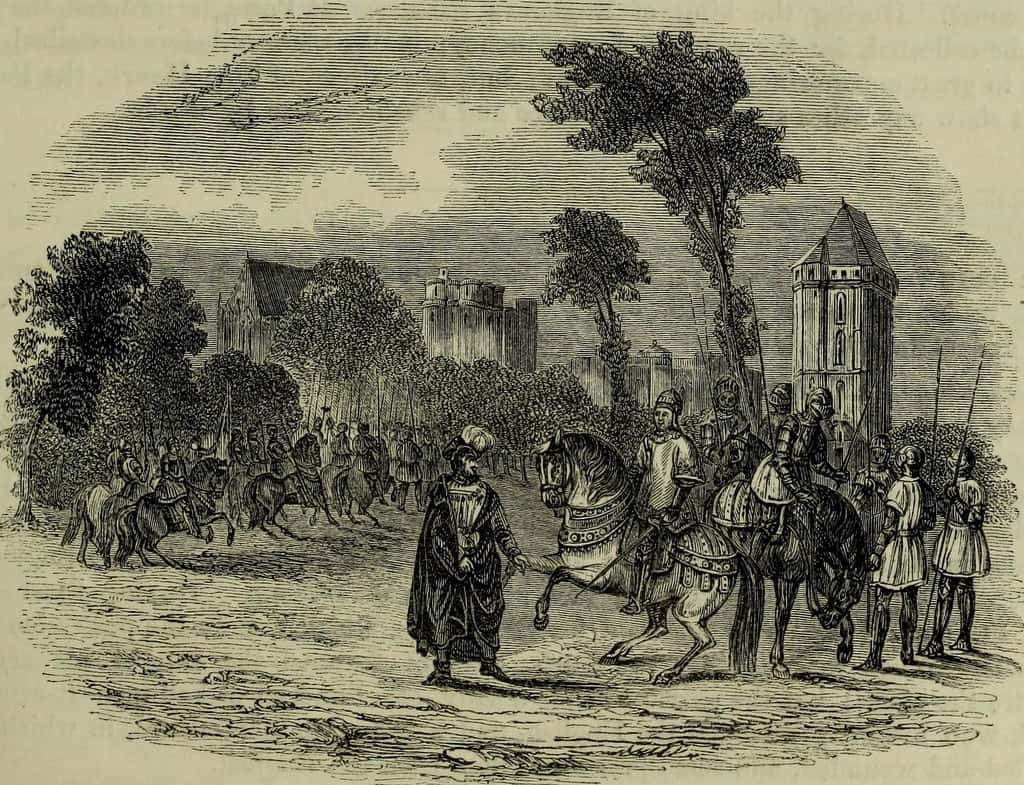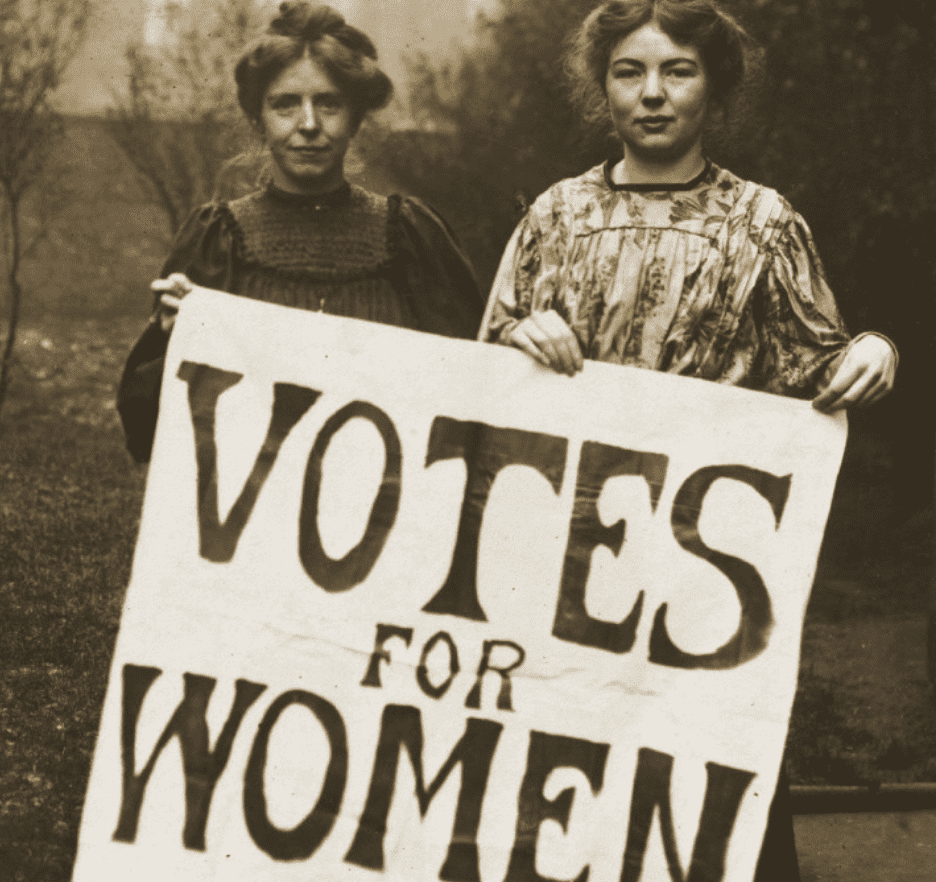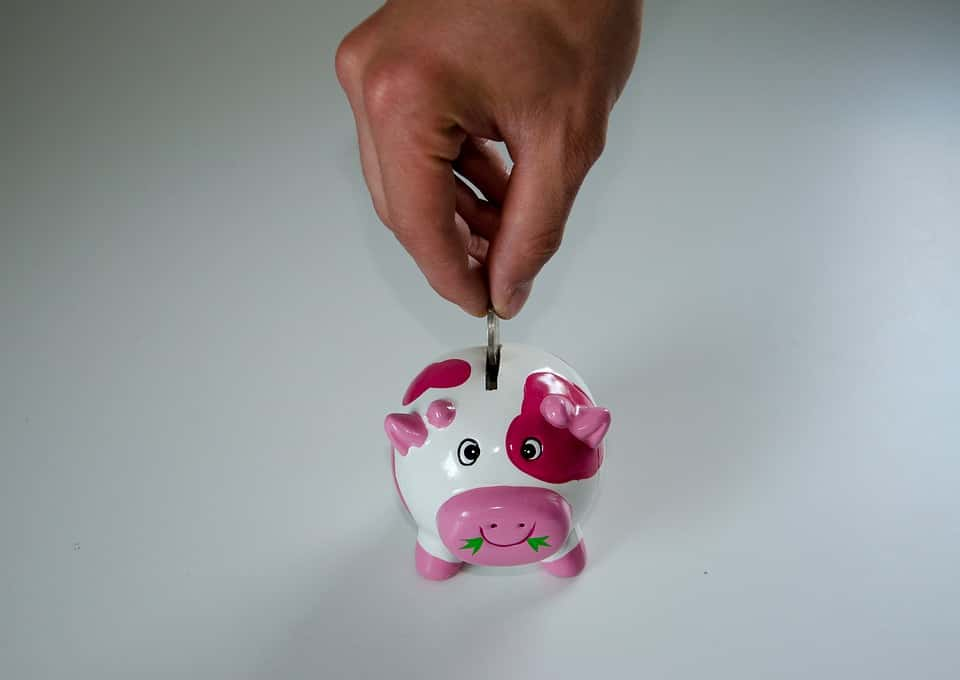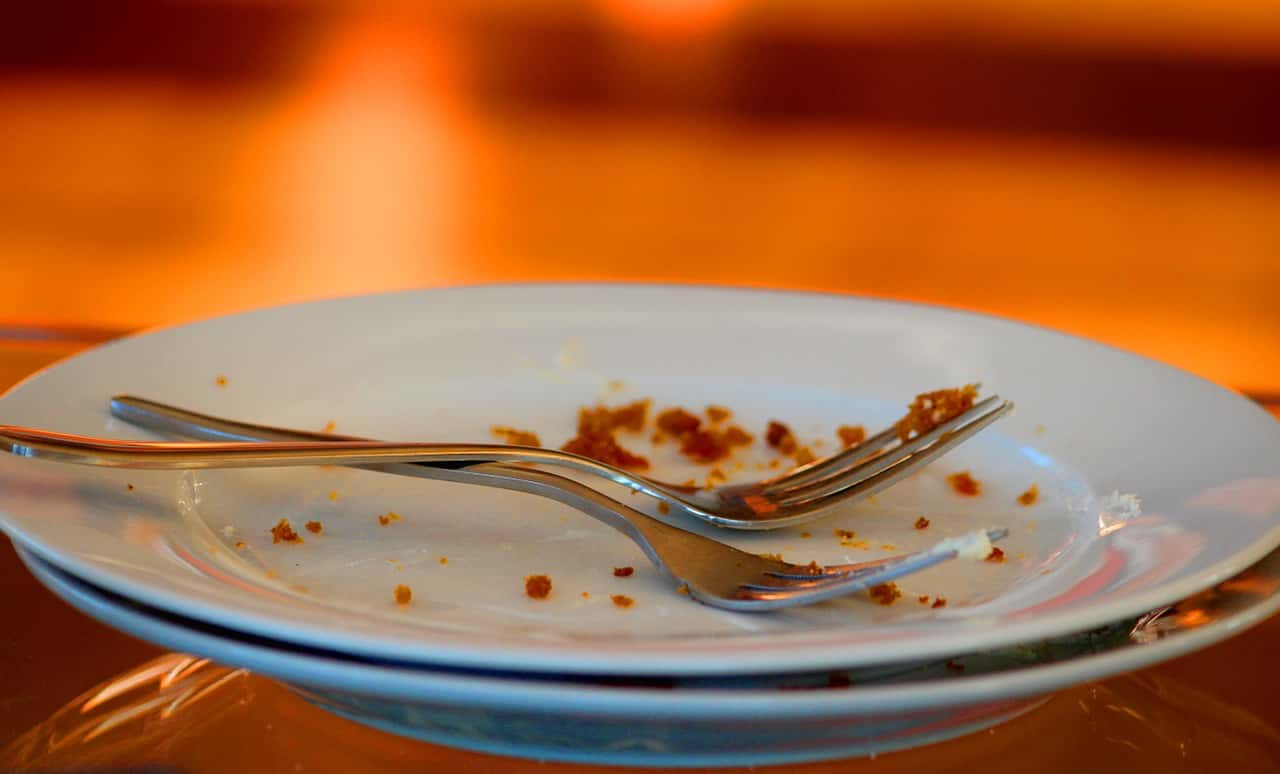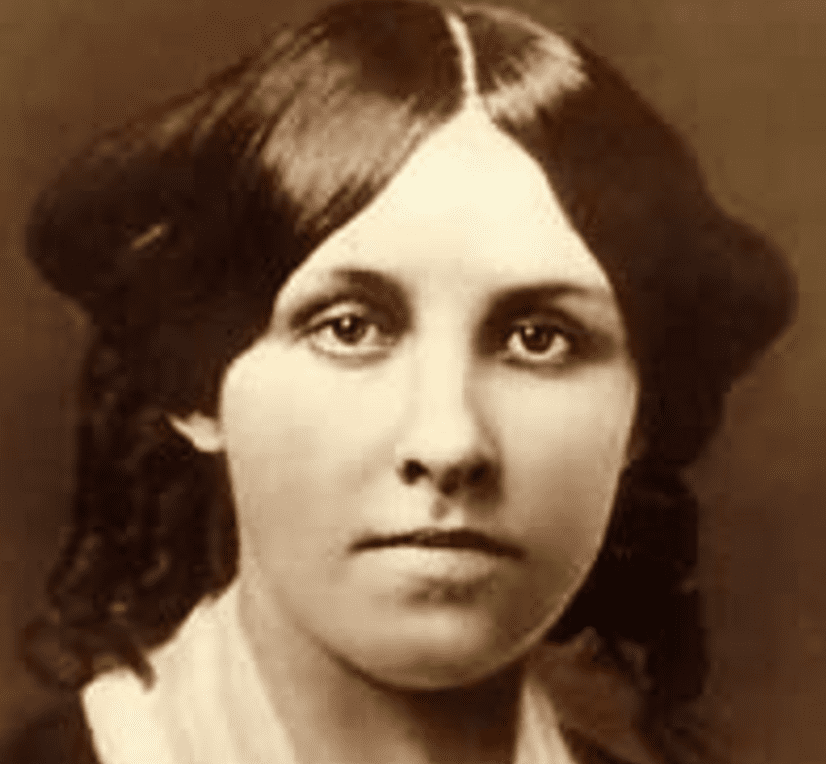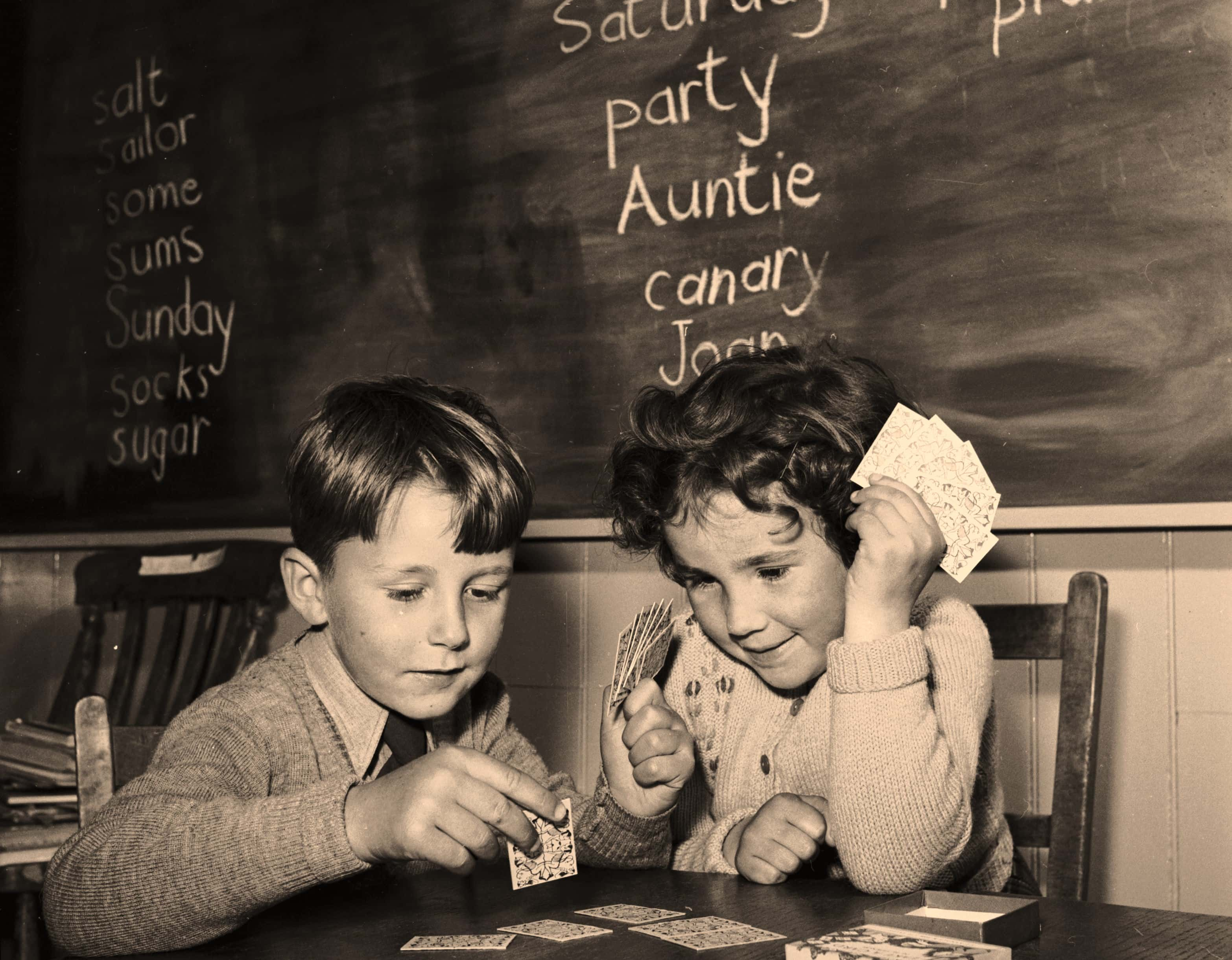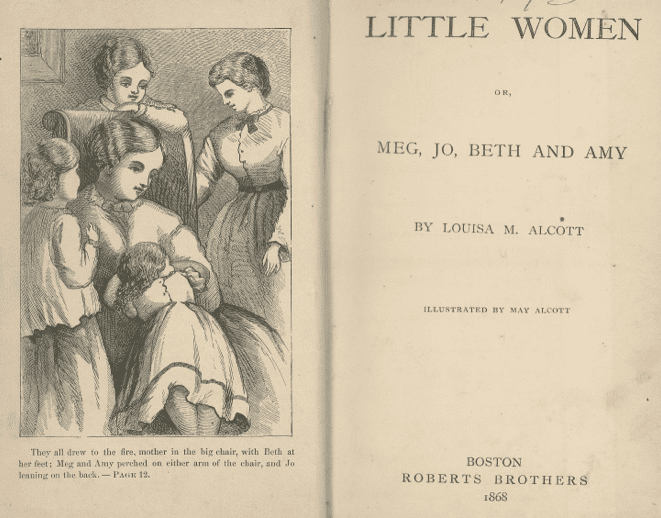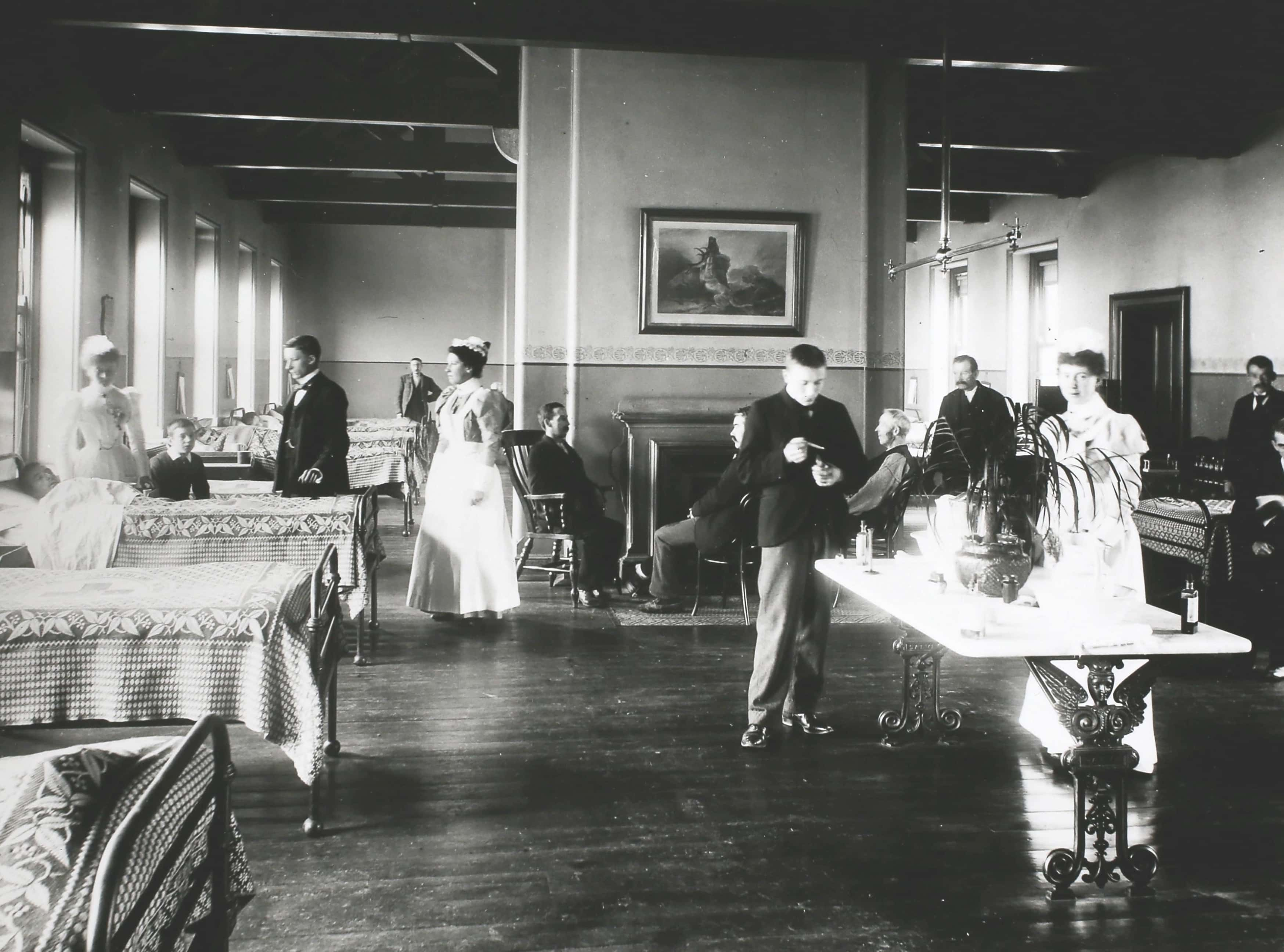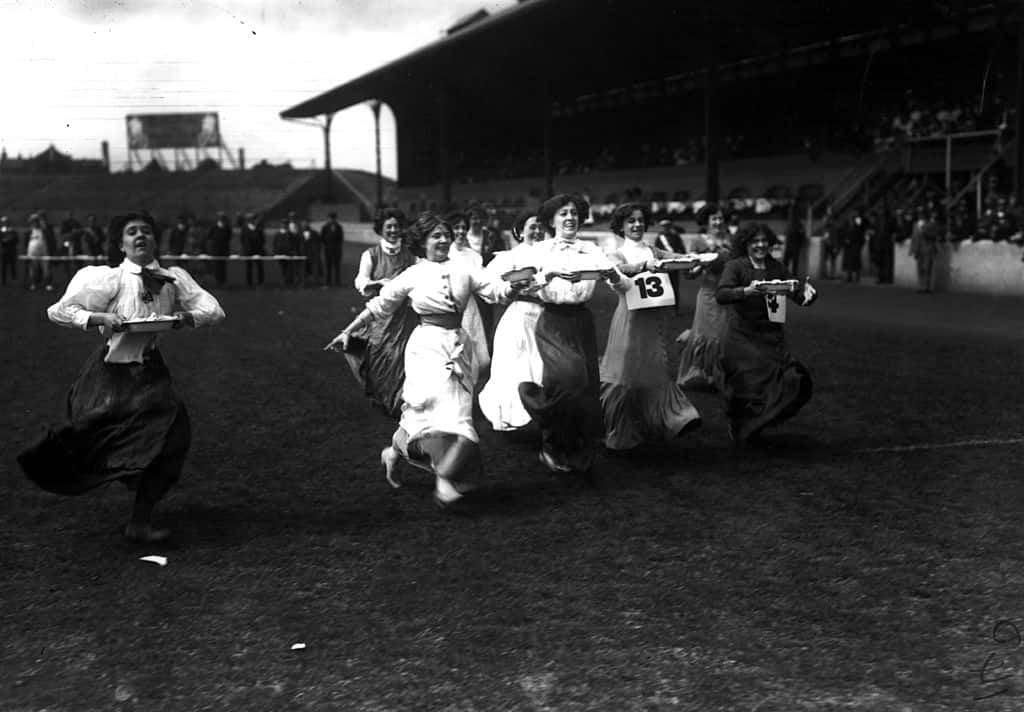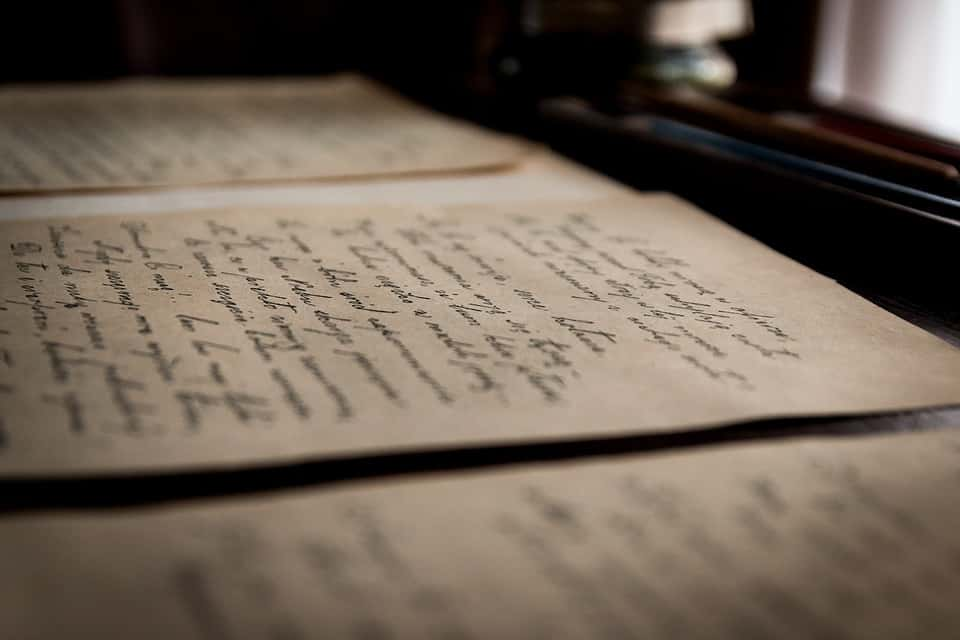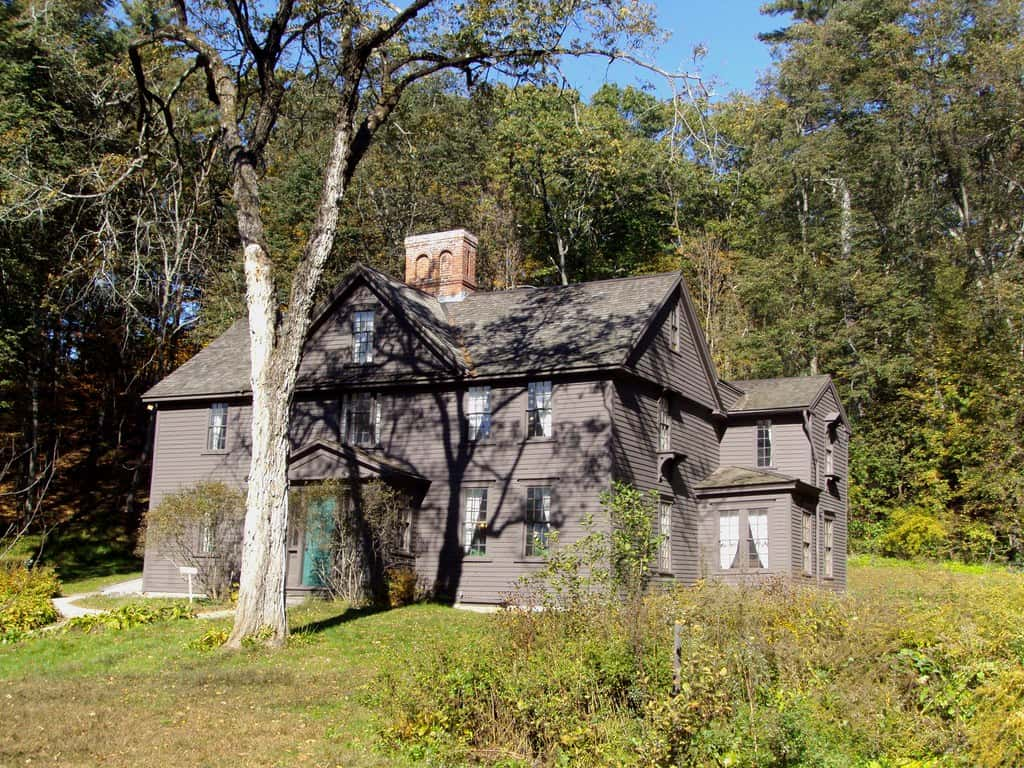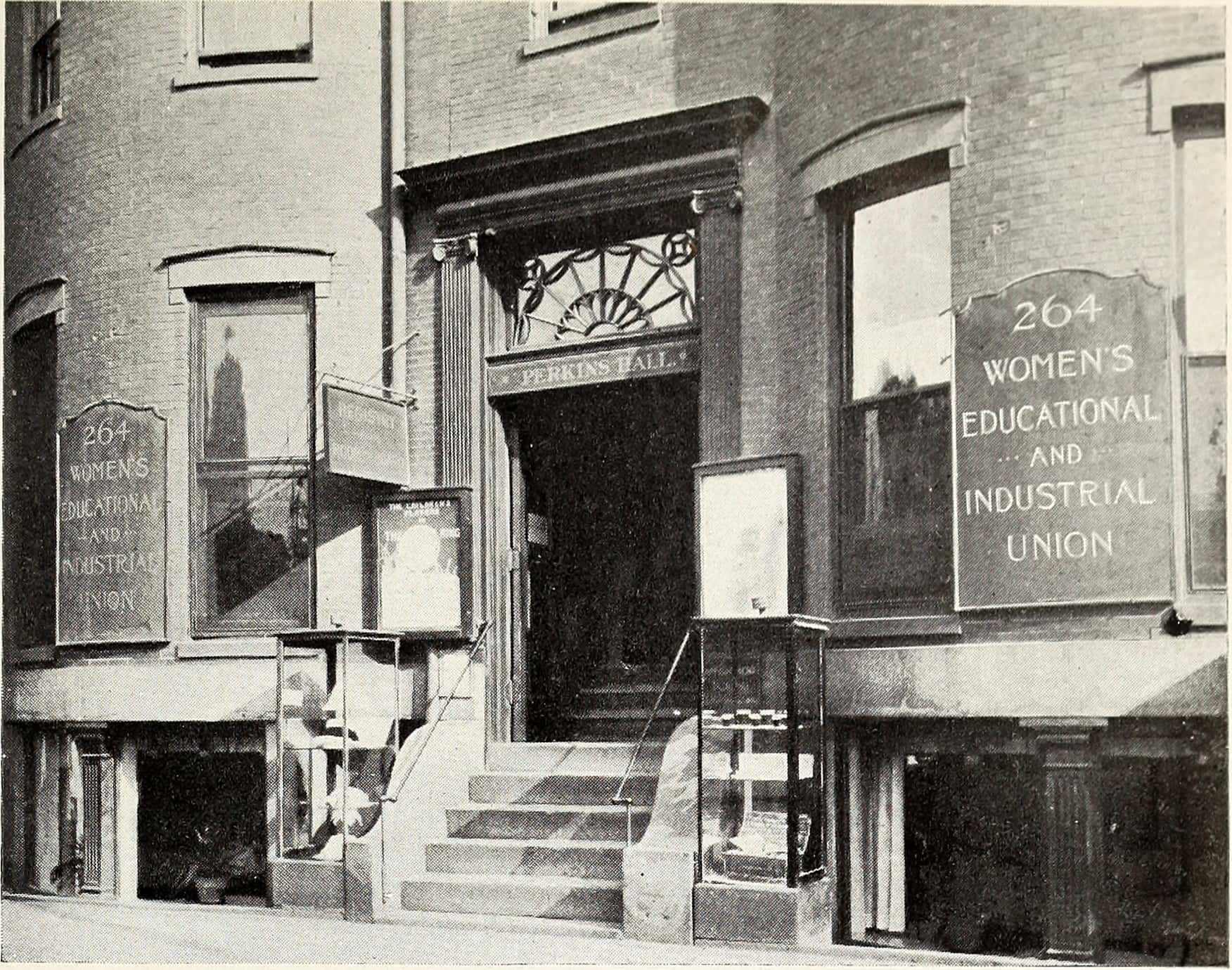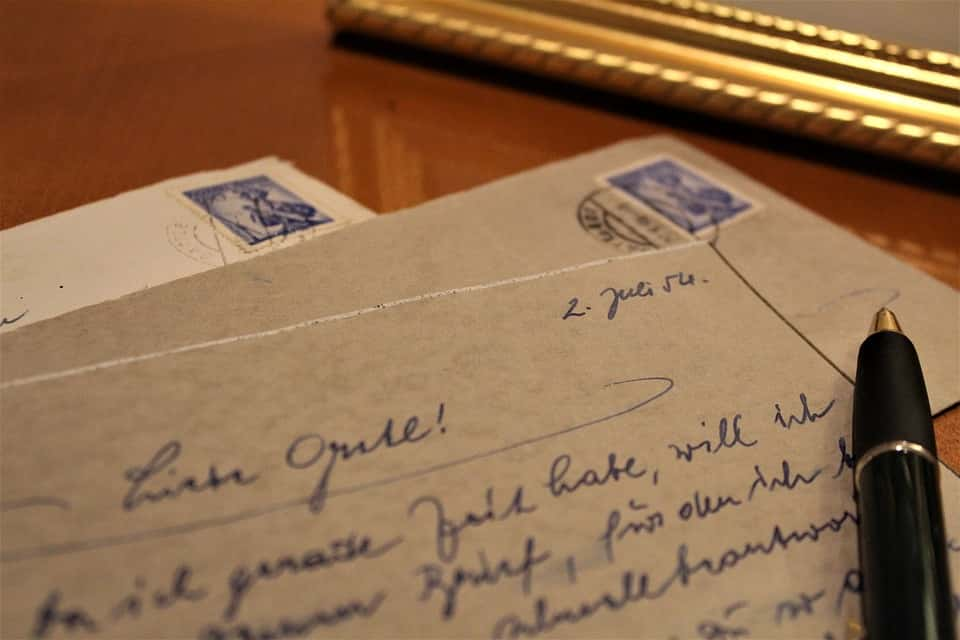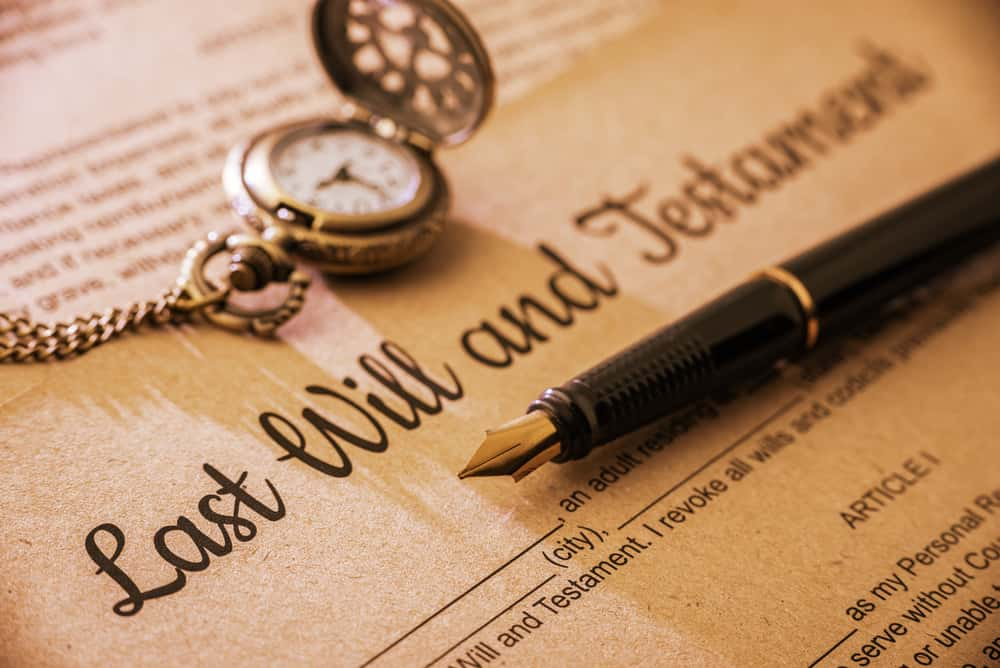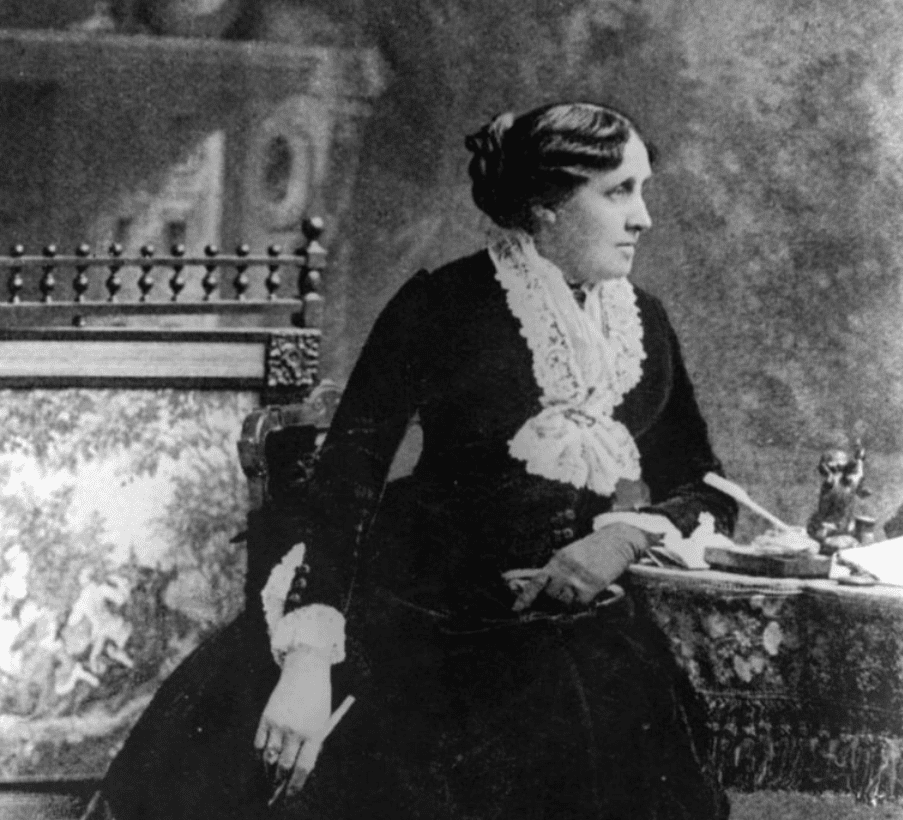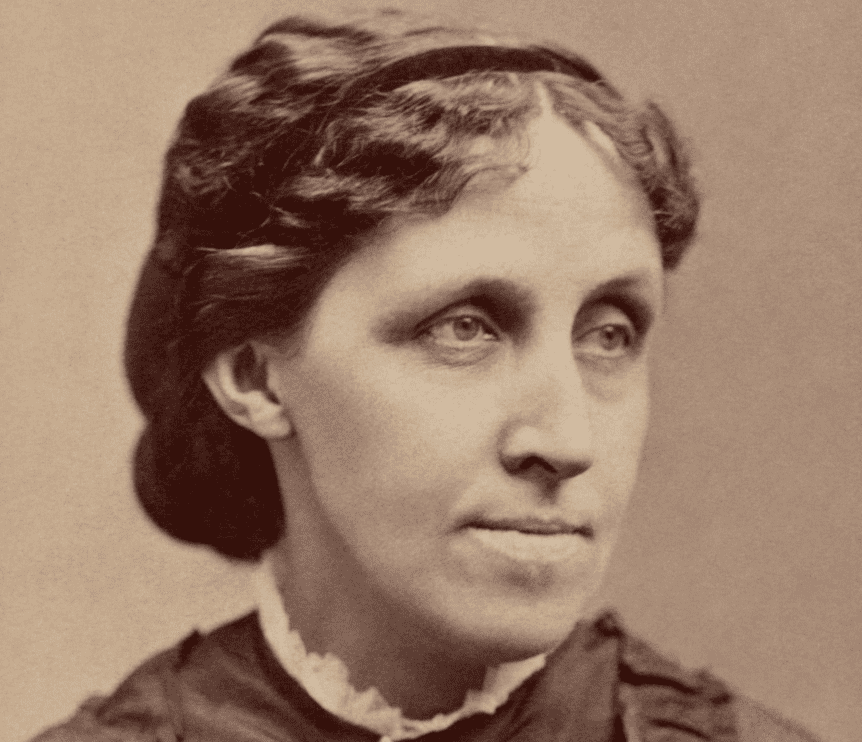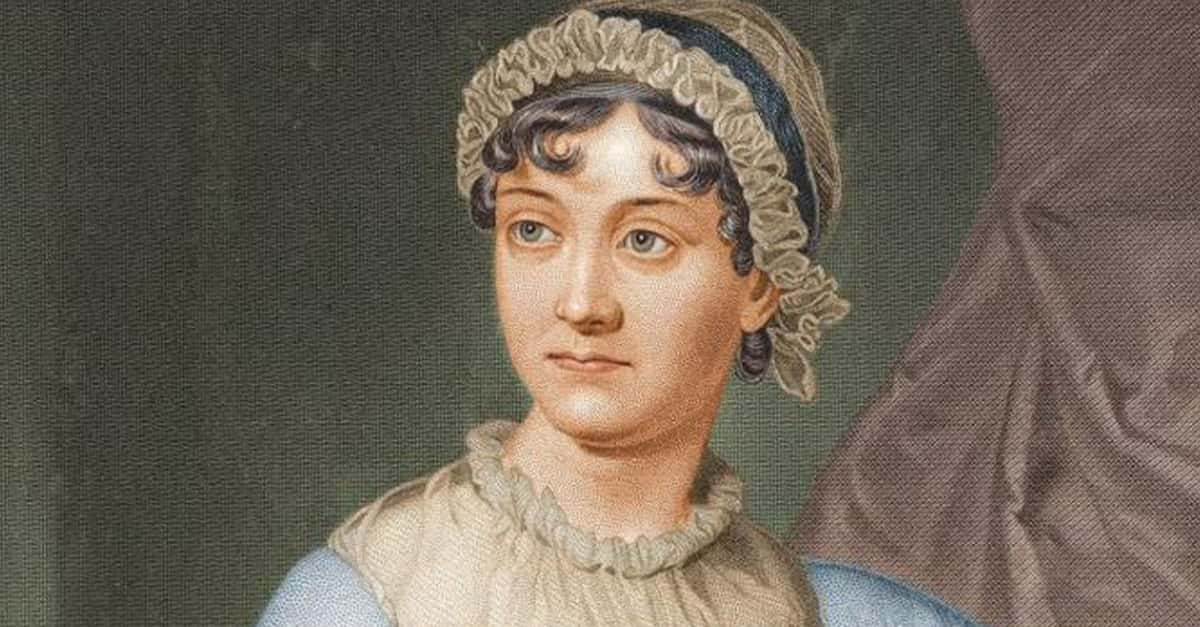"We all have our own life to pursue, our own kind of dream to be weaving, and we all have the power to make wishes come true, as long as we keep believing." - Louisa May Alcott
Louisa May Alcott was a poet, short story writer, and novelist best known for the novel Little Women and its sequels Little Men and Jo’s Boys. She was born in Germantown (now Philadelphia), Pennsylvania and raised in New England after the family moved to Boston. An ardent abolitionist and a passionate feminist, Alcott's popularity still reigns in the the 21st century. With a fresh adaptation of Little Women starring Timothee Chalamet, Saorise Ronan, and Emma Watson our this winter, it's high time to celebrate Louisa May Alcott's extraordinary life and work.
1. Lucky Number Eight
The Christmas 2019 release of the Little Women film will be the eighth time that the popular coming-of-age novel has been translated onto the silver screen. If you include all of the stage and television adaptations of the book, the number of Little Women swells to around 20, but who’s counting?
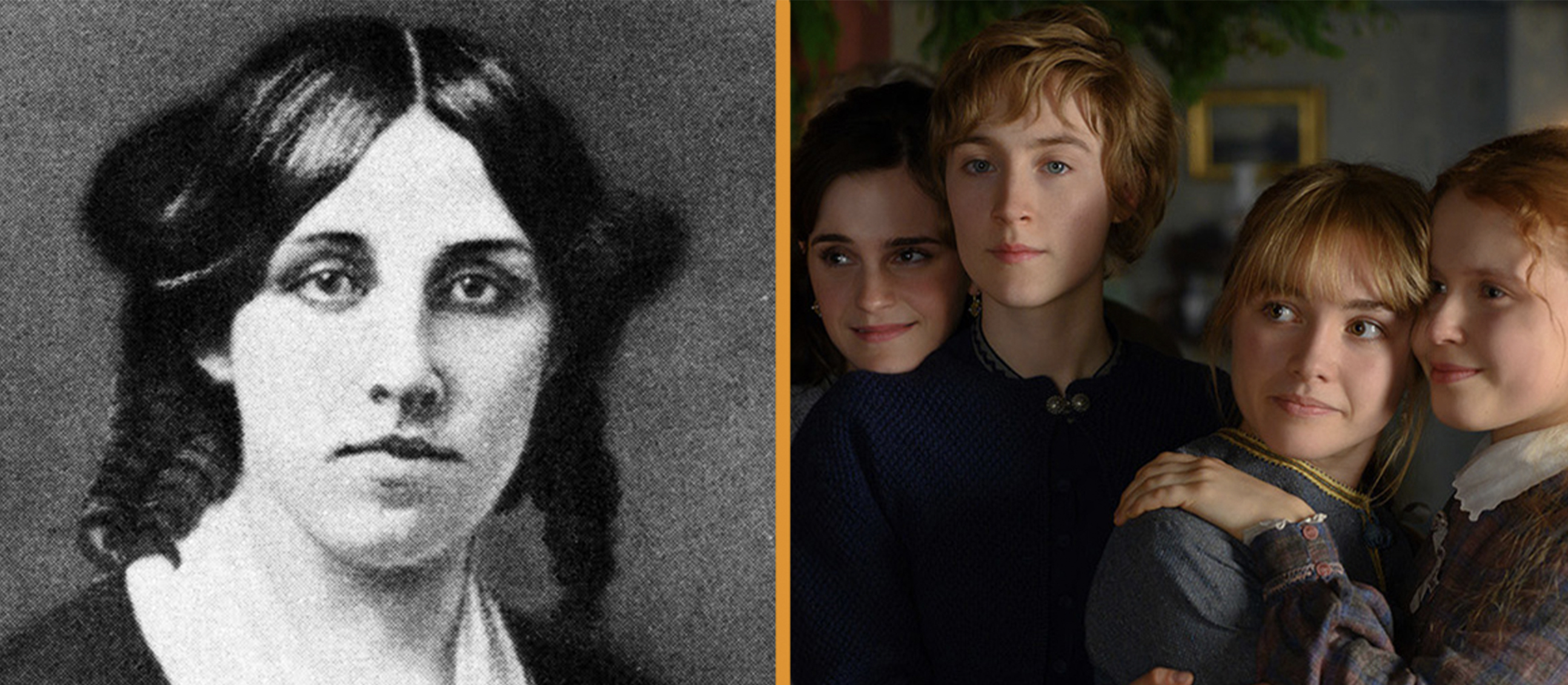
2. Interactive ABCs
Louisa May Alcott’s father had an unconventional way of teaching her and her sisters their alphabet. He had them use their bodies to make the letters, such as standing with their arms and legs out for the letter X. Fun and educational! We wonder if the YMCA dance choreographers owe Mr. Alcott some royalties...
3. Quirky Dad
As of 1836, Amos Bronson Alcott, (Louisa May’s father) was a member of the Transcendental Club, a group of New England intellectuals which was the precursor to a philosophical movement known as Transcendentalism. The movement stressed striving for individual perfection, and members included Ralph Waldo Emerson and Henry David Thoreau. Being a transcendentalist didn’t really pay well, but it exposed Alcott and her sisters to a lot of cool stuff!
4. Weird Home Schooled Kids
Alcott never attended traditional school. While living in Concord, Massachusetts, her daily lessons were conducted by her father or the occasional governess. She described the lessons as “happy hours” for her and her sisters. Her father, who thought the usual way of educating children needed some big changes, believed in allowing the child’s nature to bloom. Why overstuff kids with more than they could ever absorb? Good question, Papa Alcott.
5. Valuable Experiences
One of the bonuses of being around all of her father’s intellectual friends was that Alcott had a pretty broad education. She had full access to Emerson’s books, learned about plants from Thoreau, and got to socialize with famous figures such as the anti-racist activist Frederick Douglass and suffragette Julia Ward Howe. A classroom couldn’t beat that!
6. Blood and Thunder Tales
Before being convinced to write Little Women, Alcott wrote what were referred to as “Blood and Thunder Tales". These stories were a far cry from the sentimental world of Marmy's cottage. Instead, these books were gothic thrillers with sensational titles such as “Pauline’s Passion and Punishment” and “A Long Fatal Love Chase". A savvy writer, Alcott chose to publish these chilling stories about abusive husbands and insane asylums under a pseudonym: A.M. Barnard.
7. There's a Catch
Alcott’s father was a brilliant man, but unfortunately, his ideas didn’t quite pan out. In 1834, Alcott’s family moved to Harvard, Massachusetts where he attempted to form a quirky model community with some...strange rules. The community would be known as the Fruitlands, and the general idea was to use nothing from animals, neither products nor labor, and to be run only by the women. Sounds like a vegan, feminist dream, right? Uh, not so much.
The wives and daughters were tasked with keeping the household running (fun!) while the men galivanted around the countryside philosophizing. Winter (and hopefully female rage) put an end to the experiment. The family soon moved back to Concord.
8. Her Name in Print
At age 19, Alcott published her first poem in a women’s magazine under the name Flora Fairfield. It wasn’t until 1854 when she was 22 that she published using her own name. The writing was a collection of fairy tales called Flower Fables. Alcott had written the charming stories several years earlier for a very special reader: Ralph Waldo Emerson’s little girl. Aww.
9. Not Her Original Plan
When Alcott started writing, she didn't intend to write for young girls. She was quite content writing literature and pulp fiction when the editor at Roberts Brothers Publishing approached her and begged her to write for a younger audience. At first, Alcott refused, calling it “moral pap for the young”, but thankfully for the many readers obsessed with Jo and Laurie, she changed her mind.

History's most fascinating stories and darkest secrets, delivered to your inbox daily.
10. Brushing It Under the Table
After publishing Little Women, Alcott made a point of not advertising the stories by "A.M. Barnard." In major contrast to the extremely wholesome and family friendly Little Women, her other works were definitely not G-rated. Some of Alcott's more risqué stories featured cross-dressers, spies, and hashish. No wonder she kept it quiet.
11. Station Masters
Alcott’s family made history far beyond literature. They were active in the abolitionist movement, fighting vigorously against slavery, and even serving as station masters on the Underground Railroad. The family sheltered a fugitive slave for a week prior to the Civil War, and Alcott used her time as a nurse at Union Hospital during the war as inspiration for pieces she wrote for Atlantic Monthly and other magazines.
12. An Important First
Beginning in 1879, women in Massachusetts won the right to vote. Well, kind of. While women couldn't vote for political leaders, they were newly able to cast their ballots and determine which school committee members would serve their communities. Hey, everything starts somewhere, right? Not surprisingly, Louisa May Alcott was the first woman in her town to register to vote, following in the footsteps of her flawless suffragette mother.
13.Making Her Contribution
Since her father was such a poor provider (lol "Fruitlands"), from the time that Louisa May Alcott was nine years old, Alcott had one heartbreaking ambition. She wanted to pull herself and her family out of poverty in any way possible. Alcott worked as many jobs as were available to women at the time, working as a governess, and repairing and washing clothes all to make ends meet. Not terribly glamorous, but it paid the bills.
14. Change of Heart
Alcott was so disappointed by her financial struggles that at one point she pondered a tragic decision. The author actually contemplated throwing herself into the Charles River. A 24-year-old Alcott stared into the river and managed to talk herself out of her dark plan, vowing to return home and make it work rather than giving up.
15. Near Starvation
Alcott’s father’s odd ideas about diet severely limited what the Alcott family ate. Their meals were often made up of unleavened bread, porridge, potatoes, squash, rice, graham meal, and water. Mm. Sounds so .. good. On occasion, the sisters even went hungry, once eating only apple pudding for Thanksgiving dinner. Not exactly a balanced diet.
16. Hat in Hand
After deciding not to kill herself, Alcott attended a Sunday meeting led by the Unitarian Minister Theodore Parker. In his sermon titled “Laborious Young Women,” Parker preached that women shouldn’t be too proud to ask for help and should accept even modest work until they found what they wanted. Alcott took this advice to heart and later showed up at his doorstep. His wife put her in touch with Hannah Stevenson, who helped her find work as a governess.
17. Better than She Thought
Alcott didn’t have terribly high expectations for Little Women, but the book’s success gave her and her family financial stability for the rest of their lives. For her part, Alcott was surprised that the book was a hit, writing that, “It reads better than I expected". One would hope so since she lived it!
18. Too Progressive
In 1834, Alcott’s father set up a controversial school with a (gasp!) co-ed curriculum. Finding students wasn’t a problem but keeping them was as the community didn’t care for his disciplinary methods, or his honest discussions of religion. When Alcott refused to kick out a Black student that he’d allowed into his school, parents promptly took their kids out of his school. Sadly, he was forced to close.
19. Pen > Sword
Growing up in an abolitionist house was definitely a unique experience in the early 20th century. Apparently, young Louisa May Alcott once opened a stove and nearly fell over when she saw what was inside. It was a runaway slave who her parents were helping. After she got over her shock, Alcott befriended the man and even taught him to read and write.
20. Write What You Know
When Alcott finally agreed to write Little Women, she wasn’t really sure what she should write about. In the end, she drew inspiration from her own life, specifically, her two beloved sisters. Alcott based Meg on her sister Anna, Beth on Lizzie, and Amy on May (extra points for the cute anagram, Louisa). Jo of course is based on Alcott herself (and is a perpetual favorite among readers).
21. Rootless
Because of her father’s inability to earn real money for his family, the Alcotts were forced to move on a regular basis before settling in Orchard House in 1858. The family had as many as 30 temporary homes, and only got their permanent home with a lot of help. Along with Ralph Waldo Emerson's generosity, the Alcott's extended family chipped in to help the struggling clan out. Sadly, the reason for all this charity was far more tragic than poverty. As we'll see Alcott family would suffer a truly terrible loss.
22. Stick to Your Teaching
Alcott’s second cousin Anne Adams was married to the publisher and editor of the Atlantic Monthly, James Fields. While briefly staying with them in 1862, Alcott showed Fields her story “How I Went Out to Service,” in the hopes that he would publish it. However, Fields dealt her a cold-hearted blow. He told Alcott to “stick to your teaching, you can’t write” but Alcott didn’t let that dissuade her. She vowed in her journal to prove him wrong. That she did!
23. An Unhappy Task
In her time serving as a nurse for the Unionists, Alcott wasn't afraid to get her hands dirty. She did every dirty job there was, ranging from dressing wounds, washing the bodies of soldiers, and feeding the wounded. As horrible as those jobs could be, according to Alcott, there was still something worse. That honor went to writing letters to the family and friends of the soldiers who perished in hospital. She called this part of her job “the saddest and hardest duty a nurse has to do” in letters she sent back home.
24. Daring Advice
In 1868, Alcott published Happy Women as a tribute to busy, independent spinster women (is this already my favorite book? Yes, yes it is). The piece was published as an advice column for young ladies in the New York Ledger. In a totally baller move, Alcott ended by going against the grain, and advising that the words ‘old maid’ should be taken as an honor and not an embarrassment. Preach!
25. Uncommon Exercise
Women in the 19th century were considered too delicate to do any strenuous exercise, not to mention the numerous layers of restrictive clothing that would have made it impractical even if they wanted to. Alcott, never one to go with the flow, used to enjoy running. She even encouraged her readers to take it up as well.
26. Compromise or Spite?
Readers of Little Women used to write Alcott letters begging her to have Jo marry neighbor Laurie. Of course, Alcott refused. In an eternally controversial twist, Laurie ended up marrying the spoiled youngest sister Amy instead. Whether Alcott did it to make her readers happy or to spite them for trying to match-make is anybody’s guess.
27. Alike but Different
The character of Jo bore numerous similarities to Alcott’s own life, but the one area where their paths differed was in marriage. Unlike Jo who Alcott had not intended to marry but eventually did, Alcott chose to be a spinster. The author once proclaimed, “I’d rather be a free spinster and paddle my own canoe". (Promptly goes on Etsy and looks for a t-shirt with this quote).
28. Author in Disguise
When Little Women became successful, fans of the book used to turn up at Alcott’s home in Concord to see where she lived. Not particularly wanting or enjoying the attention, Alcott used to pretend to be a servant when she answered the door in hopes of getting them to leave. That's one way to handle your fans, Louisa.
29. Not Quite So Angelic
Like her fictional counterpart Beth, Alcott’s sister Lizzie tragically passed on when she was very young. After contracting scarlet fever at age 22, Lizzie sadly passed on. But that's not even the worst part. While Beth was written as the ‘suffering’ and ‘angelic’ child, Lizzie was in pain, angry and scared. She particularly resented the mostly invisible life she’d been forced to lead. You have to think she would have hated her character.
30. A Sister’s Wish
Alcott never had any of her own kids but it was her sister May’s dying wish that Louisa take care of her niece and namesake Louisa. Lulu, as she was called, lived with Alcott until she was eight. When Louisa May Alcott passed on, Lulu went to live with her father Ernest in Switzerland.
 Shutterstock
Shutterstock
31. Founding Mothers
Alcott was one of the founders of the Women’s Educational and Industrial Union in Boston, along with physician Harriet Winifred Clisby, Unitarian teacher Abby Morton Diaz, reformer Mary Thorn Lewis, and writer Julia ward in 1877. Its goal was to function as an outreach organization for women, offering employment, legal aid, and medical care to poor female workers. Sign me up.
32. The Treatment’s Worse than the Disease
About six weeks into nursing, disaster struck Louisa May Alcott. She contracted typhoid fever and pneumonia, forcing her to give up her position and go home. She was treated with a poisonous mercury compound called calomel which was standard for the time. However, as we now know, mercury is super radioactive and dangerous.
Alcott's immune system never recovered from the illness (or, in a cruel twist of irony, the should-be cure). She suffered from poor health, vertigo, and hallucinations for the rest of her life.
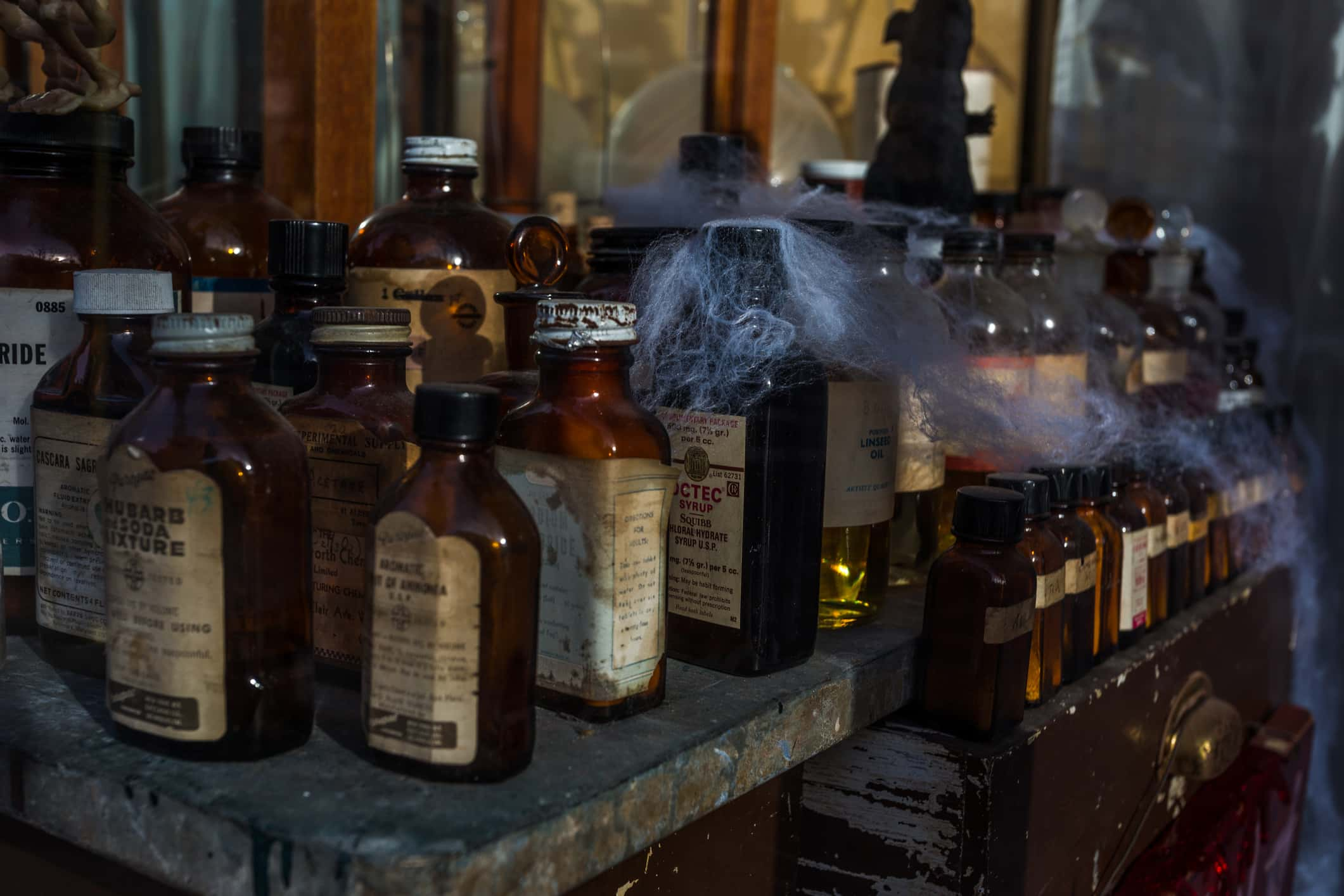 Getty Images
Getty Images
33. The Art on the Walls
Louisa’s youngest sister May was a successful artist and got to practice her craft by painting and drawing on her bedroom walls. (Remember the part in Little Women when Amy becomes a painter? Yeah, definitely based on May). In fact, most of the artwork currently displayed in Orchard House was created by May. Several of her paintings were even accepted into the prestigious Paris Salon.
34. A Creepy Experience
At age 18, Alcott was hired by a wealthy man named James Richardson to be a companion for his sister. He promised Alcott that she’d be treated like part of his family and would live in a beautiful mansion filled with access to numerous books. But he had a far more sinister plan in mind. Richardson actually wanted Louisa May to keep him company at night. When she showed more interest in his books than him, he demoted her to slave.
He forced her to do the hardest and most miserable chores. She lasted seven weeks and was paid a mere $4.00 for her trouble.
35. A Quick Finish
Alcott really didn’t want to write her most famous juvenile novel, but she finally caved when her publisher promised to publish the latest work by her father if she wrote it. Now that she was properly motivated, she completed 400 pages of Little Women in two months.
36. Repaying a Debt
After telling Alcott to stick to teaching, Fields gave her a loan of $40.00 for the Kindergarten school she had opened, saying that she could repay it when she “made a pot of gold". A few years after the publication of Little Women, Alcott wrote Fields a letter saying, “Once upon a time you lent me forty dollars, kindly saying that I might return them when I made 'a pot of gold.' As the miracle has been unexpectedly wrought I wish to fulfill my part of the bargain, & herewith repay my debt with many thanks". What a class act.
37. Nobody Can Have It
In addition to her novels and stories, Alcott wrote a play titled “The Rival Prima Donnas” which was supposed to be produced at the Boston Theatre. Unfortunately, the play never came to fruition because the leading actresses got into an argument about who would play which role. In the end, Alcott got so exasperated by the drama that she hatched an incredible plan for revenge. She took back her script and promptly burnt it.
38. Back-to-Back
In 1882, Alcott’s father Bronson suffered a stroke and became paralyzed, dying six years later in Boston in 1888. Tragically, Alcott, though only 56, passed on two days later. Even stranger, Louisa May followed in her father's footsteps even in death: she also perished of a stroke.
39. Final Bequest
Knowing that she was dying, Alcott used chauvinistic laws for her own gains. She legally adopted her sister Anna’s son John and left him her copyrights. Because Anna's husband had sadly passed on, the family had very little financial support. In giving John the rights to her novels, Louisa May became her sister's knight in shining armor. She guaranteed financial stability for them for the rest of their lives.
40. Tourist Attraction
If you want to see for yourself where Alcott grew up, you’re in luck! The Orchard House in Massachusetts still stands and is a designated National Historic Landmark. Visitors can take a tour of the house and see the original furniture and paintings from the house, including Alcott’s writing desk. (Hallelujah music plays in background).
41. Ya Basic
In a story based on Alcott's horrible experiences with her predatory employer James Richardson, the author burned her awful boss. When the character based on Richardson asks Alcott's fictional avatar if she'd rather sit in silence instead of hearing him talk about philosophy, Alcott's character immediately quips, "Infinitely."
42. Author’s Ridge
Alcott was laid to rest in Sleepy Hollow Cemetery in Concord, in a spot known as author’s ridge. Author’s ridge is also the burial site of other famous writers such as Ralph Waldo Emerson, Henry David Thoreau, and Nathaniel Hawthorne, so it’s a perfect place for aspiring writers to seek inspiration.
Sources: 1, 2, 3, 4, 5, 6, 7, 8, 9, 10, 11, 12, 13, 14, 15, 16, 17, 18, 19, 20, 21

